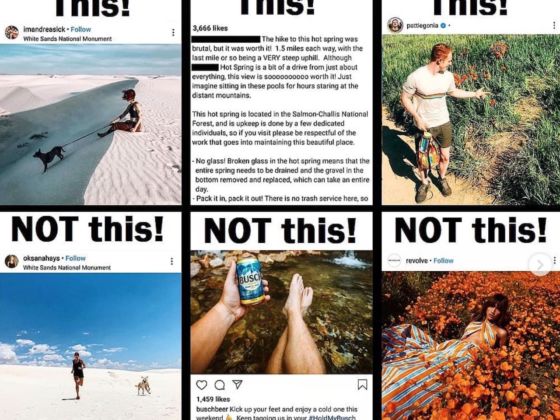There’s one thing we all need to learn about our modern, social-media-fueled oversharing tendencies: It can seriously bite us in the rear. And sometimes we deserve it. Case in point: the Instagram account “Public Lands Hate You.”
The founder of the account, a 31-year-old engineer who calls himself “Steve,” was inspired by the poor behavior he often observed on hikes, including people wandering off designated trails, using drones illegally, trampling flowers, etc. to call out offenders and shame them out of their bad habits via Instagram.
